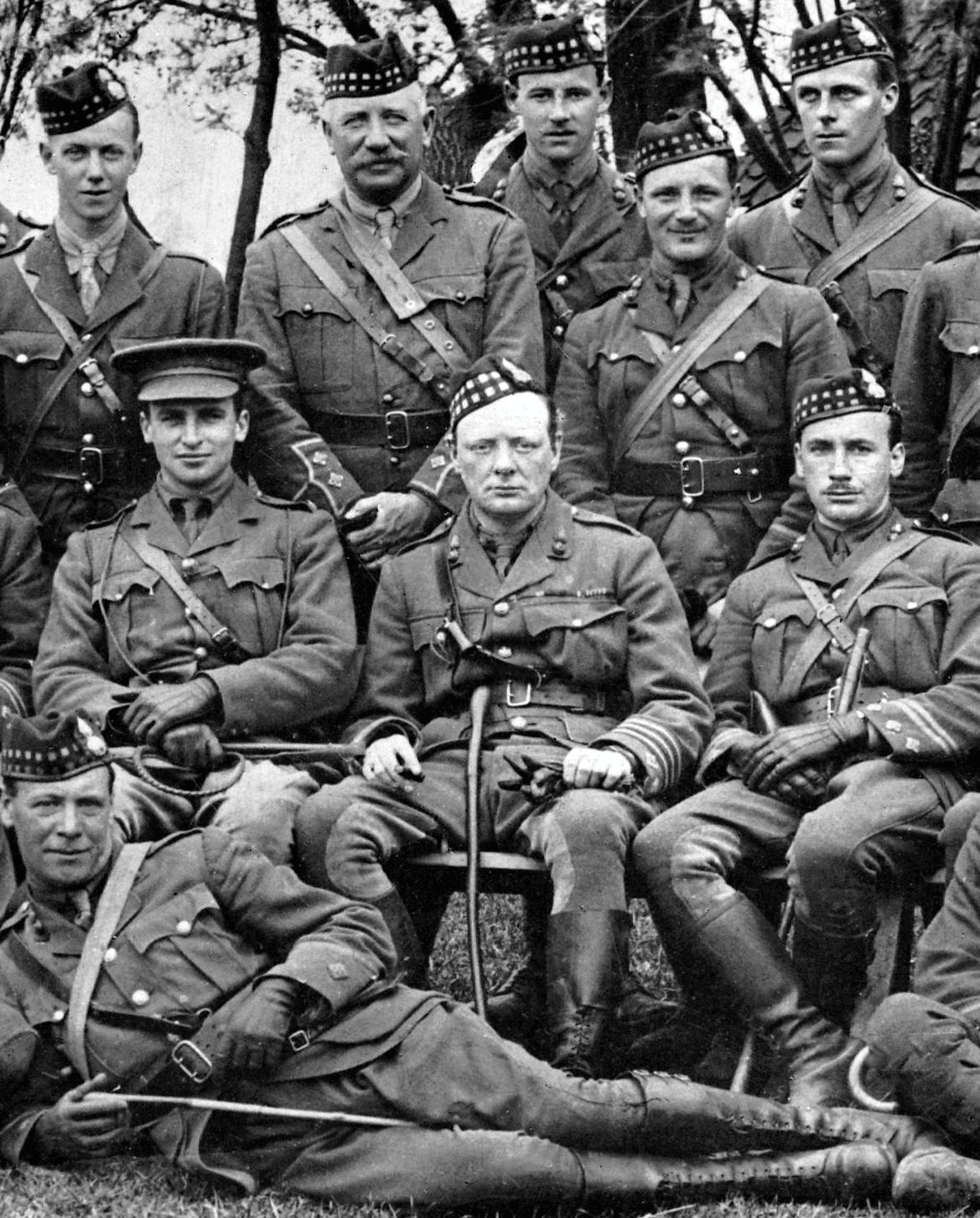So maybe you're one of the many who graduated college and found yourself moving back in with parents- possibly far away from your friends or that girlfriend. Or you found yourself working a job you're over qualified for, and there's no way out. You've got an iphone but no place to live. You're just married and your college loan payments are two thirds of your salary. Your crappy 1992 Honda Civic is as worn out as your shoes, and those dreams of your own parking space and a corner office are fading fast. Maybe that dream girl turned out not to be, or that guy got cold feet. You're too young and too old at the same time, and you've got 213 facebook friends but you're lonely on a Tuesday night...
 |
| Winston Churchill, 1916 |
I don't mean to compare the hardships endured by those in truly trying times to those more trivial neurotic problems of today, but in fact I mean to contrast them. Winston Churchill, knew a few things about difficult times. He was a veteran of Cuba, India, the Sudan and the Second Boer War. In WWI he personally made 36 forays into 'no man's land', generally conducting himself heroically, even while facing political opposition at home. Years later when speaking at Harrow at the tail end of the Blitz, he commented on the lyrics of one of the school's traditional songs. He took the opportunity to make his point, objecting to the words referring to "darker days". He said:
Do not let us speak of darker days: let us speak rather of sterner days. These are not dark days; these are great days - the greatest days our country has ever lived; and we must all thank God that we have been allowed, each of us according to our stations, to play a part in making these days memorable in the history of our race.
Although the German air assault on Britain during World War II officially focused on industrial targets, bombings increasingly took their toll on civilian life. The book Eagle in Flames: The Fall of the Luftwaffe, describes how in London alone an estimated 28, 556 people were killed in night time incendiary attacks, with many thousands more wounded. The cost in lives and sheer terror is almost unimaginable in today's world. The battle for the morale of the British people is as famous as the Normandy invasion itself.
It was in this context that Churchill told the British people to thank God that they could play a part in those times.
When reading the quote from Churchill I can't help but be reminded of the similar sentiment with which James opens his letter:
"Consider it pure joy brothers and sisters whenever you face trials of many kinds, because you know that the testing of your faith produces perseverance. Let perseverance finish it's work so you may be pure and complete, not lacking anything." James 1:2-4
Maybe the days we can be greatest are those we have to simply endure. An opportunity to persevere. So maybe that corner office isn't in the works, you're still lonely and that car isn't getting any newer. Your future is uncertain. So what? Waiting and hoping faithfully gets you far, even in the worst of times.
Or, as Churchill said himself, "If you're going through hell, keep going."

